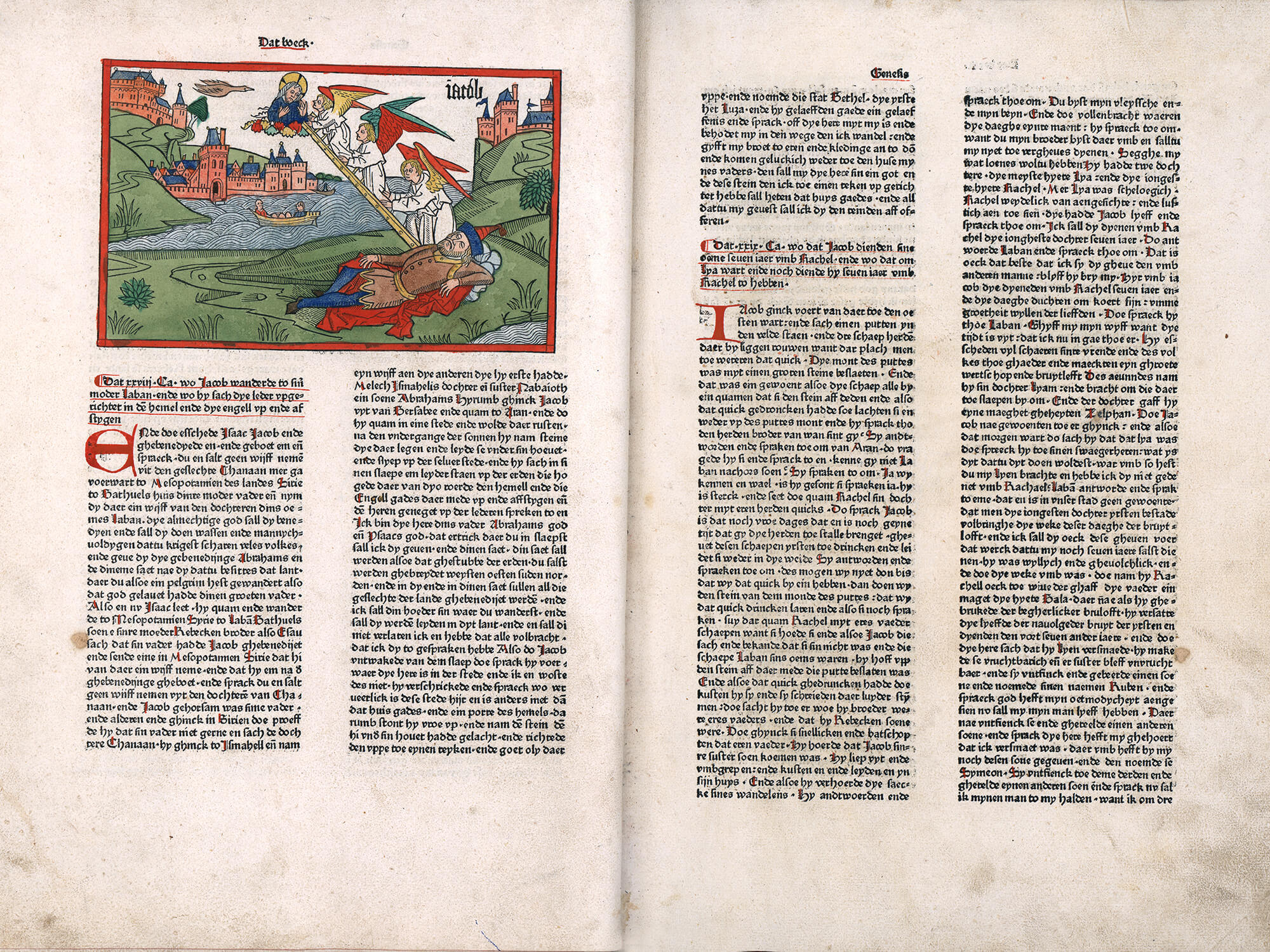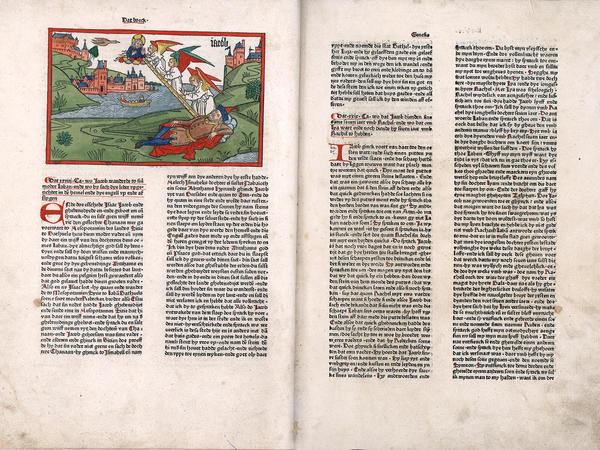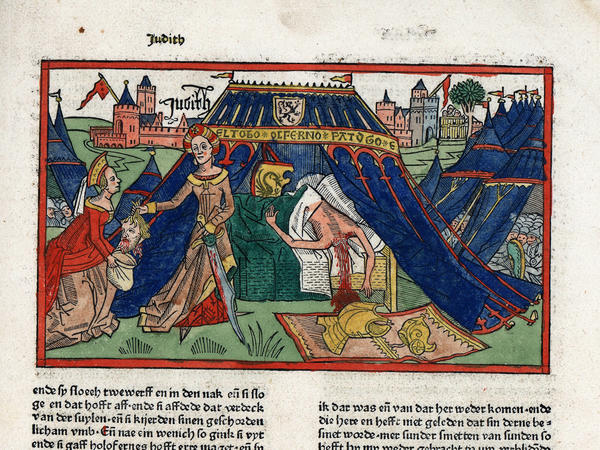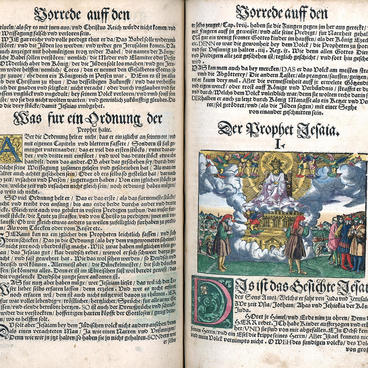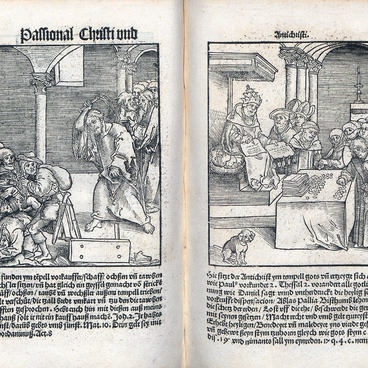The first Bible in the West Low German dialect with Nicholas de Lyra’s glosses is known as the Cologne Bible.
In the Middle Ages, the church discouraged translations of the Bible into national languages, and cautious attitudes towards translations persisted even after the invention of printing. In 1485, after the release of several German versions of the Bible, Archbishop of Mainz Berthold von Henneberg prohibited publishing the Bible in German, saying that, “simple and uneducated people and the female class who will get their hands on the volumes of the Holy Scripture will fail to comprehend the true meaning of the text”. However, despite the ban, German language Bibles remained in print, albeit in smaller quantities.
In the Middle Ages, the church discouraged translations of the Bible into national languages, and cautious attitudes towards translations persisted even after the invention of printing. In 1485, after the release of several German versions of the Bible, Archbishop of Mainz Berthold von Henneberg prohibited publishing the Bible in German, saying that, “simple and uneducated people and the female class who will get their hands on the volumes of the Holy Scripture will fail to comprehend the true meaning of the text”. However, despite the ban, German language Bibles remained in print, albeit in smaller quantities.
